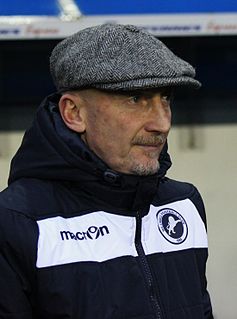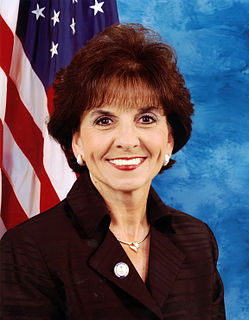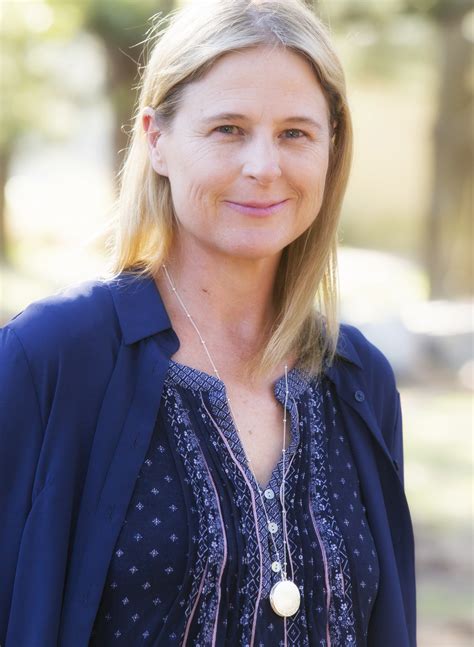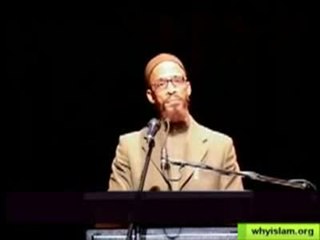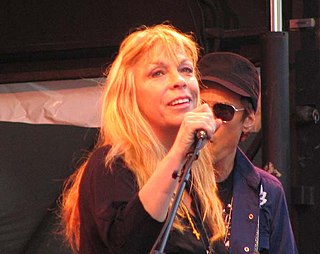A Quote by Robin Epstein
I hate to say it, but all that stuff they try to tell you about women being empowered and how it's fine for a woman to ask a man out, well, it's crap.'
I look down at my watch. 'Seven fifty-three p.m.'
'What does that mean?'
'Official time of death of feminism,' I reply, and mom laughs.
Related Quotes
I'm friends with a lot of writers and so many of them say how much they hate signings and how they leave after a certain period of time. But what is so hard about sitting there while people tell you how much they love you? And if you don't like it, well, learn to like it. I try to take one person at a time. I never look down the line to see how many more people are left. And I always try to make people talk about something besides whatever they planned to say.
If we're a natural man, we're attracted to a woman. You are our natural partner in the act of procreation. Now there's a time and a place for everything, but when a fine-looking woman, with a fine-looking form walks down the street, a man could be working with a jackhammer, and when he spies that woman, he'll watch her as she walks. What kind of thought comes up in your mind? You don't say, "Oh, what a great creature." Like a dog you may say, "Man, I'd sure like to have some of that!" That's not what you want.
Something I say a lot when it comes to anti-feminist stereotypes is that they exist for a reason. The stereotypes of feminists as ugly, or man-haters, or hairy, or whatever it is - that's really strategic. That's a really smart way to keep young women away from feminism, is to kind of put out this idea that all feminists hate men, or all feminists are ugly; and that they really come from a place of fear. If feminism wasn't powerful, if feminism wasn't influential, people wouldn't spend so much time putting it down.
I know a few women younger than me who have careers and children, and so the burgeoning career and family happen at the same time. A few have said something like, "During dating, he was all about feminism. But now I have to ask him to help with the children, I have to ask him to do the dishes, and every time he does, it's like a favor. Where's the feminist I married?" That's theoretical feminism, not practical feminism. I don't think we're all where we need to be. I don't know if we will be in my lifetime. Life is imperfect. But interesting.
Dear Complete and Utter Stranger, The first thing that I have to say is that I hate oatmeal. I really hate it. And you know what? If you like oatmeal at all? I mean even the tiniest bit? I mean, say you were lost in the Himalayas, right, and you hadn't eaten anything except a Mars Bar for about seven years, right, and you're really cold and your fingers are all dropping off, right, and you look behind this rock, and there's this bowl of oatmeal? Say you would even think about eating the oatmeal? Well, JUST DON'T BOTHER WRITING TO ME, OKAY?
Feminism is a choice, and if a woman does not want to be a feminist, that is her right, but it is still my responsibility to fight for her rights. I believe feminism is grounded in supporting the choices of women even if we wouldn't make certain choices for ourselves. I believe women not just in the United States but throughout the world deserve equality and freedom but know I am in no position to tell women of other cultures what that equality and freedom should look like.
Let’s not ask Barbara Walters about how Muslim women feel. Let’s not ask Tom Brokaw how Muslim women feel. Let’s not ask CNN, ABC, FOX, The London Times, or the Australia Times. Let’s not ask non-Muslims how Muslim women feel, how they live, what are their principles, and what are their challenges. If you want to be fair, ask a Muslim woman. Ask my wife. Ask my mother. Ask a Muslim woman who knows her religion, who has a relationship with her Creator, who is stable in her society, understands her responsibilities. Ask her.
Well, besides being entertained, I’d like to move them emotionally. I mean I really want to uplift them. I want to look down at the audience, and this is personal experiences now I’m going to tell you. It’s like you look down at the audience and see people smiling, crying, hugging each other. I want them on their way home to feel empowered like they can do anything.
I have three kids. Now they're all grown up, but when they were little, every time I would start a new project, they would say, 'So dad, are you making a movie we can watch or one we cannot watch?' That's the kind of stuff they would ask. People around me - family and friends - usually know when to watch and when not to watch.
I'm surprised how often I'm asked about being a man with a woman narrator. I'm not the first, nor will I be the last. It's been done forever, but we seem to forget that. The whole notion of "write what you know" is not just boring, but wrong. Lately it seems like every novel has to be a memoir. I'm a boring person, but I'm a writer with a relatively vivid imagination. And when people ask me about how I find the voice of a woman, I tell them that my life is run by women.




